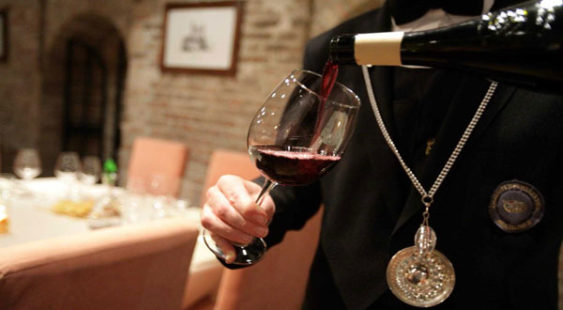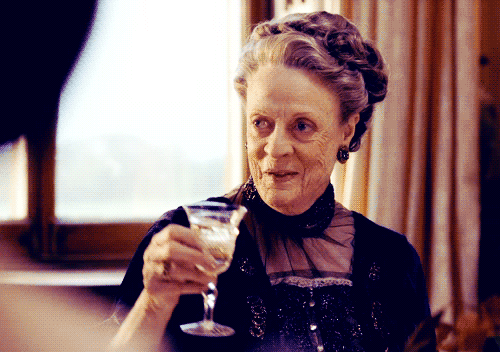One of the words thrown around a lot in the wine world is “sommelier.” You know, he’s that dude who comes over to the table, pontificates about the wine list, passive-aggressively coerces you into buying a bottle way above your budget, and then tells you why you should feel lucky even to be drinking it.
Or, at least, that’s the way it has felt until recently. These days, sommeliers (and more often, just plain-termed “wine directors”) are dynamic young folks of both genders with a contagious enthusiasm for wine, stamps in their passports from visiting wine regions all over the world, and a no-nonsense but approachable attitude toward helping you order.

For a profession with a reputation for being snooty, the origins are rather humble. Image source: North American Sommelier.
And not a moment too soon! With more people drinking more wines from more places these days, it’s more important than ever that the folks selling that wine in restaurants, bars and stores know what they’re talking about and represent a diverse range of interests. But that’s enough on the state of sommeliers today. Let’s take a quick look at the word and how it originated.
First, you pronounce it, “some-mull-yay.” Like, I’ll have “some” wine after “mulling” it over. “Yay!”
Second, it might surprise you to learn that the word sommelier derives from the Middle French word “sommier,” meaning pack animal. Etymologists believe that the men in charge of the provisions and pack animals in noble retinues came to be called first “sommeriers” and then “soumeliers” before the modern form of the word became the norm. The folks with the job today are just in charge of beverages (and cigars in some institutions).
The sommelier as we know him (or her) is a product of modern restaurant culture that dates as far back as the French Revolution. As public eating habits shifted from tavern settings to restaurants, fewer grand households needed full staffs, let alone someone in charge of the wine buying (see: Downton Abbey, seasons 4-6). So the only place to find employment involving wine (or as a chef, for that matter) was in restaurants.

The Dowager Countess probably wasn’t thrilled when her downsized butler had to become a sommelier.
From there, the profession took a turn toward the snobby, especially in Europe around the beginning of the 20th century, and the United States by the middle of it. But these days, you won’t find a huge number of actual sommeliers. Instead, most restaurants in the States just have a wine director or beverage manager, or something like that.
That’s because to be an actual sommelier not only takes a lot of time and hard work (which many people without the title still fulfill), but you actually have to be certified as a sommelier by a recognized body, and there are several qualification levels. But I’ll save that for another post!

